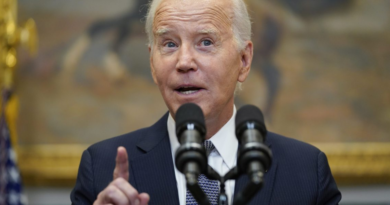FCC announces plans to reinstate net neutrality
Net neutrality is back on the menu, citizens. After a long, long battle ending in eventual defeat during Trump’s presidency, the FCC is set to reinstate rules that broadband providers must treat all traffic equally, giving no sweetheart deals to business partners or their own services.
The effort to revive this popular rule was announced in a speech at the National Press Club by FCC Chairwoman Jessica Rosenworcel, who was one of the original rule’s champions over a decade ago.
Rosenworcel said that broadband is “not a luxury, it’s a necessity,” adding: “It is essential infrastructure for modern life. No-one without it has a fair shot at 21st century success. We need broadband to reach 100% of us, and it needs to be fast, open and fair.”
In a fact sheet shared online, Rosenworcel said that the FCC “seeks to largely return to the successful rules the Commission adopted in 2015,” which would classify broadband as essential on a par with water, power and phone service.
As a quick refresher, net neutrality is the principle that internet providers — mobile or “fixed” like fiber — should act as simple pipes for data, not performing any analysis or prioritization beyond what is required to ensure good service. Some data must be prioritized due to the way networks function, of course, but it would be wrong (and illegal under net neutrality) for, say, Comcast to throttle the streaming services of its competitors while giving its own an advantage.
Although behavior that egregious was not particularly common, it had occurred, and non-neutral practices were gaining ground rebranded as “zero rating,” ostensibly a special deal for consumers where some streaming services didn’t count toward bandwidth caps.
The FCC passed net neutrality rules in 2015, and the idea that the companies we pay for bandwidth should have nothing to do with what we used that bandwidth for was extremely popular (especially as this was likely broadband companies’ nadir in terms of public opinion). But other parties were not so pleased with what they perceived as regulatory overreach.
But with the 2016 election came (as expected) new leadership for the FCC. Tom Wheeler, one of the architects of the net neutrality rule, gave over chairmanship to Ajit Pai, who made no secret of his intention to make overturning it a priority.
And overturn it he did, using legal logic that was spurious in the extreme, prompting the drafters of the law he cited to object to his interpretation of it. But the deed was done.
Since then, a few states have attempted to place net neutrality rules on the books, and some national laws have been proposed as well. But ultimately it seems to have been acknowledged to be a matter for the FCC to decide, as it had done before.
Although Chairwoman Rosenworcel would almost certainly have liked to bring the matter before the Commission earlier, Republicans in the Senate have for years stalled on approving a fifth commissioner. This left the balance of power equal with two per party, dooming any allegedly partisan rulemaking like net neutrality. But with Anna Gomez being sworn in as the fifth just today, that obstacle is removed.
Senators Ed Markey and Ron Wyden already noted their support of this endeavor:
The broadband and mobile industries will likely cry loudly that in the absence of net neutrality rules there has been no serious offense against the principle. But the better explanation for this is that these companies considered themselves on probation following the 2015 order, which given the flimsiness of the legal work overturning it, they knew must come round again.
Now Rosenworcel, likely armed with an improved order that addresses any loose threads hanging off the last one, is in a fair position to establish net neutrality in a more permanent way. There will be some unpleasantness from dissenting Commissioners — Carr already dropped a pre-disputation of the plan ahead of Rosenworcel’s remarks. And perhaps some kind of outrage from the political right, which may as it did before cast this (like other initiatives on privacy and accountability from the FCC) as an infringement on the free speech rights of corporations. Unfortunately the judge who made that decision, Brett Kavanaugh, is now a Supreme Court Justice. So we may very well see net neutrality climb its way to that high court, where perhaps he will receive a second legal drubbing.

